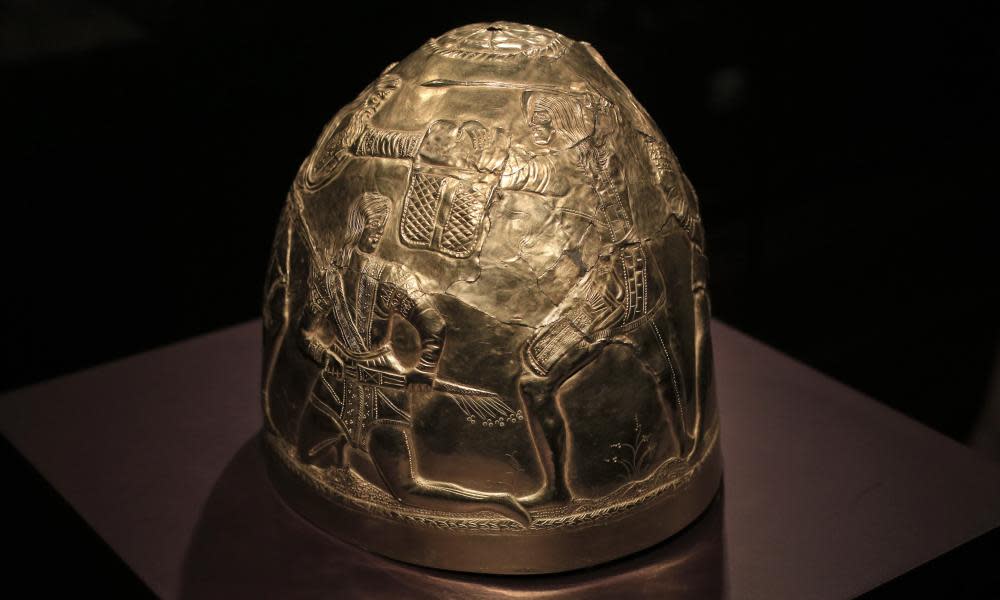Ukraine has legal right to Crimean artefacts, Dutch court rules

An appeals court in the Netherlands has ruled that Ukraine has legal control over a trove of artefacts from Crimea that was on loan to a Dutch museum when Russia annexed the peninsula in 2014.
Russia had sought to take control of the historical treasures, often called the “Scythian gold”, which includes gold and ceremonial daggers used by the nomadic tribe, a golden helmet from the 4th century BC, amulets, jewellery, and other treasures, including a Chinese lacquered box that made its way to Crimea along the Silk Road.
Formally, the return of the exhibition is sought by four Crimean museums that lent the artefacts to the Allard Pierson Museum in Amsterdam in 2014. Those museums came under Russian control after the annexation.
The highly anticipated appeals court decision was received as another condemnation of Russia’s annexation of Crimea, which has been rejected in the west and recognised by just a handful of governments around the world.
The Ukrainian president, Volodymyr Zelenskiy, called the ruling a “long-awaited victory”. “We always return what is ours,” Zelenskiy wrote on Twitter. “First we will return the ‘Scythian gold,’ and then we will return Crimea.”
Earlier this year, Ukraine held a Crimean platform summit where officials from 46 countries and blocs, including the Netherlands, signed a joint declaration on the “non-recognition of Russia’s illegal annexation of Crimea”.
Russia, which maintains de facto control over the region, has sought to integrate the peninsula through large infrastructure projects such as a bridge to mainland Russia. Vladimir Putin has also staked a cultural and historical claim to the peninsula, saying in a 2014 speech after the annexation that the region had “returned to its home harbour”. Locals who have protested the annexation have been charged with separatism and other crimes.
Russian officials have condemned the Dutch court’s decision, although they stopped short of repeating threats to cut off all inter-museum exchanges with the Netherlands.
A Crimean official said the decision “flagrantly violate the right of the Crimean people to access their own cultural heritage”.
Mikhail Shvydkoi, a Russian official tasked as an envoy for international cultural cooperation, said that the museums would try to appeal against the decision up to the supreme court of the Netherlands. He called the case of the Scythian gold “a kind of force majeure”.
The collection has been billed as one of the most important exhibitions on international loan in Ukraine’s history.
“Never before has Ukraine made so many prize archaeological exhibits available on loan: stunning artefacts made of gold, including a scabbard and a ceremonial helmet, and countless precious gems,” the Allard Pierson Museum in Amsterdam announced before the February 2014 opening of its exhibit “Crimea: Gold and Secrets of the Black Sea”.
Less than one month later, Russian troops without insignia seized key infrastructure in Crimea, setting off a chain of events that led to the peninsula’s annexation by Russia.

 Yahoo Movies
Yahoo Movies 
